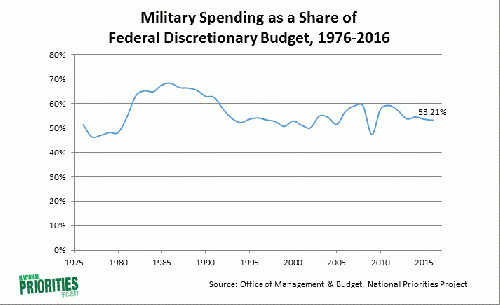We Did It! Now's Our Chance!
Everybody out to oppose war at the next meeting!
At the March 6, 2017, meeting of the Charlottesville City Council, (video here) three members of the council proposed to put on the agenda for a future meeting a vote on a resolution opposing the increased military spending proposed by President Donald Trump. If even just those three (Kristin Szakos, Wes Bellamy, and Bob Fenwick) vote in support of the resolution it will pass. The views of the other two City Council Members (Mike Signer and Kathy Galvin) are unknown.
We are currently assuming, and will confirm as soon as possible, that the vote on the resolution will come at the March 20th, 7 p.m., meeting. We need to be there in large numbers!
We also need to sign up in large numbers ahead of time for 3-minute speaking slots. Please do that here: http://bit.ly/cvillespeech (Of fifteen slots, ten go to online sign-ups, five to early arrivals in person.)
Thus far, these organizations have endorsed the resolution: Charlottesville Veterans For Peace, Charlottesville Amnesty International, World Beyond War, Just World Books, Charlottesville Center for Peace and Justice, the Piedmont Group of the Sierra Club, Candidate for Commonwealth's Attorney Jeff Fogel, Charlottesville Democratic Socialists of America, Indivisible Charlottesville, heARTful Action, Together Cville,
We need to reach out to other organizations and ask them to sign on. We'll add them here: http://bit.ly/cvilleresolution
In making the case for this resolution, the National Priorities Project can be a useful resource. For example:
"For Department of Defense, taxpayers in Charlottesville, Virginia are paying $112.62 million, not including the cost of war. Here's what those tax dollars could have paid for instead:
1,270 Elementary School Teachers for 1 Year, or
1,520 Clean Energy Jobs Created for 1 Year, or
2,027 Infrastructure Jobs Created for 1 Year, or
1,126 Jobs with Supports Created in High Poverty Communities for 1 Year, or
12,876 Head Start Slots for Children for 1 Year, or
11,436 Military Veterans Receiving VA Medical Care for 1 Year, or
2,773 Scholarships for University Students for 4 Years, or
4,841 Students Receiving Pell Grants of $5,815 for 4 Years, or
41,617 Children Receiving Low-Income Healthcare for 1 Year, or
99,743 Households with Wind Power for 1 Year, or
23,977 Adults Receiving Low-Income Healthcare for 1 Year, or
61,610 Households with Solar Electricity for 1 Year."
And here's a chart of the percentage of federal discretionary spending going to militarism each year. It hasn't topped 60% since the Cold War ended. Trump is proposing to put it back up there.
Cities that have passed resolutions in favor of reducing military spending in recent years are numerous and include Charlottesville as well as the U.S. Conference of Mayors. Already this year, New Haven has passed one
The most common objection to local resolutions on national topics
is that it is not a proper role for a locality. This objection is easily
refuted. Passing such a resolution is a moment's work that costs a
locality no resources.
Americans are supposed to be directly
represented in Congress. Their local and state governments are also
supposed to represent them to Congress. A representative in Congress
represents over 650,000 people -- an impossible task.Most city council
members in the United States take an oath of office promising to support
the U.S. Constitution. Representing their constituents to higher levels
of government is part of how they do that.
Cities and towns routinely and properly send petitions to Congress for all kinds of requests. This is allowed under Clause 3, Rule XII, Section 819, of the Rules of the House of Representatives. This clause is routinely used to accept petitions from cities, and memorials from states, all across America. The same is established in the Jefferson Manual, the rule book for the House originally written by Thomas Jefferson for the Senate.
In 1798, the Virginia State Legislature passed a resolution using the words of Thomas Jefferson condemning federal policies penalizing France.
In 1967 a court in California ruled (Farley v. Healey , 67 Cal.2d 325) in favor of citizens' right to place a referendum on the ballot opposing the Vietnam War, ruling: "As representatives of local communities, board of supervisors and city councils have traditionally made declarations of policy on matters of concern to the community whether or not they had power to effectuate such declarations by binding legislation. Indeed, one of the purposes of local government is to represent its citizens before the Congress, the Legislature, and administrative agencies in matters over which the local government has no power. Even in matters of foreign policy it is not uncommon for local legislative bodies to make their positions known."
(Note: You can view every article as one long page if you sign up as an Advocate Member, or higher).






